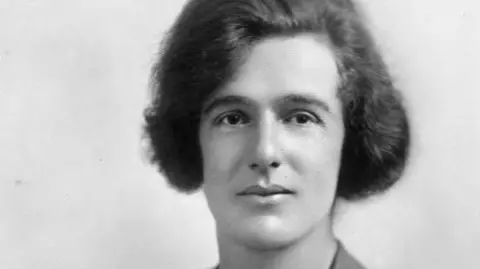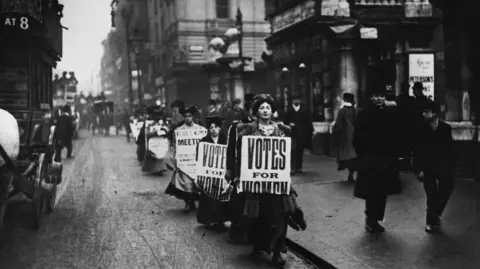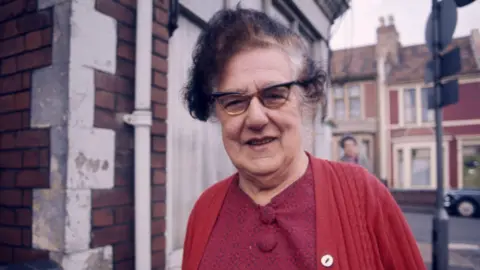The teenage suffragette who poured acid into mailboxes
 Maryhill Burgh Halls
Maryhill Burgh HallsFew people would have looked twice at the teenage maid stopping by a Glasgow post box in 1912.
That was exactly what Jessie Stephen was counting on - because she was dropping bottles of acid over the mail as part of a suffragette campaign for women's rights.
It was one of many cases of activism in the life of Jessie, who campaigned for labour rights and established a trade union by the time she was 20.
Now a new exhibition in the city she grew up in is telling her story in detail.
"I think she was before her time," says Anabel Marsh, the women's history enthusiast who has curated the new exhibition running at Maryhill Burgh Halls until 13 June.
"She didn't let anything get in her way, she was very forthright."
She needed that forthright attitude throughout her life.
Born in 1893 in London and the oldest of 11 children, Jessie's father was a tailor and work soon drew him to Scotland, where the family eventually settled in Glasgow.
Growing up she dreamed of a teaching career, but had to abandon that when her father's work struggled, and she left school in her teens to seek work as a maid.
"She found the conditions very poor and organised all the other servants into a trade union and got them better conditions," says Anabel, referring to the Scottish Domestic Workers Federation union Jessie established around 1912.
She was sacked by one employer at Belhaven Terrace in Dowanhill for twisting her ankle while at work over the Christmas period.
"Her employer, Lady Chisholm, said 'she could not afford to keep a servant in her house who wasn't in a position to carry out the whole of her duties', even though Jessie had wrenched her ankle running upstairs in the course of those duties", says Anabel.
 Getty Images
Getty ImagesWorkers rights remained a passion for Jessie throughout her life.
However she had also been drawn to the suffragette movement at a young age. Her work as a maid gave her the perfect excuse to go to mail boxes and throw acid, ink or paint over letters and parcels, as campaigners fought the law.
"As she was in a maid's uniform to do that she got away with it, as no-one would look at her," says Anabel, who was first drawn to Jessie's story several years ago after discovering her through the Glasgow Women's Library.
In an interview with historian Brian Harrison in the 1970s, Jessie recalled the so-called "pillar box outrages" were planned "with military precision."
She said: "We were all handed our tools, the boxes of acid or whatever it is we had to do, and we were told the time to drop it in – we covered the whole city of Glasgow that way.
"It was done at different times, so if it was 18:00 one night it'd be 20:00 the next. One of the women was a chemist and was able to get boxes of acid for us. The only time we were caught [protesting] was window smashing – being in service I couldn't do that, but I could do the acid dropping."
During the First World War she moved to London to help the Worker's Suffrage Foundation campaign for women to get the vote and she never lived in Glasgow again, eventually settling in Bristol.

Anabel believes Jessie's story is fascinating because the history of suffragettes is dominated by middle class protesters like the Pankhursts, as opposed to women from working class backgrounds.
"A lot of them would have families depending on them and had to remain anonymous," she explains.
"Jessie was quite clear that activism was her life and she didn't want to marry, so she didn't have people depending on her – she could afford to be more visible and so she's one of the few working class Scottish suffragettes we know about."
Jessie never lost her passion for campaigning - she worked as a journalist for a spell, became a local councillor, took over a typing service and attempted on several times to become an MP, while arguing the case for socialism throughout her life.
She died in Bristol in 1979 aged 86, having lived there since the 1940s.
In 1952 she became the first woman president of the Trades Council and a blue plaque was later placed on the Bristol street where she lived. She was awarded an MBE the year before her death.
"Jessie continued with her activism all through her life, starting very young, and campaigned for so many different issues, which makes her quite remarkable," says Anabel.
"That's why it's important to tell her story."
